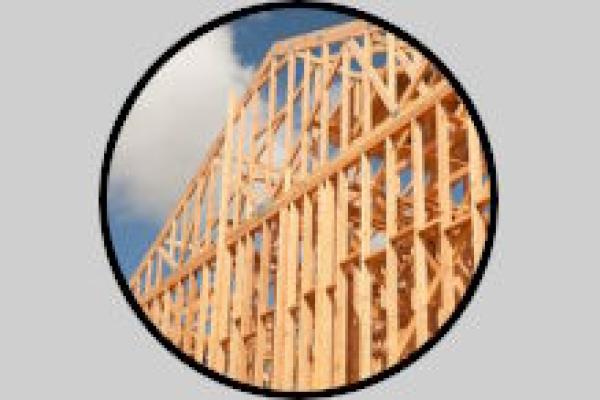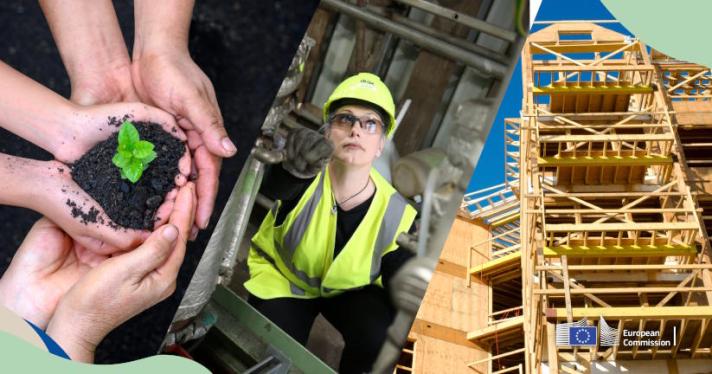Stay Informed
Sign up to our dedicated newsletter to receive regular updates on carbon removals and carbon farming.
About carbon removals and carbon farming
What are carbon removals and carbon farming?
Carbon removal and carbon farming are innovative approaches that capture CO2 from the atmosphere or directly from emission sources and store it in long-term reservoirs such as geological formations, forests, soil or products.
The role of carbon removals and carbon farming in the European Green Deal
Achieving climate neutrality in Europe by 2050 will require substantial greenhouse gas reductions as well as carbon removals to compensate for unavoidable emissions from hard-to-abate economic sectors. The Sustainable Carbon Cycles Communication, published in December 2021, introduced an action plan to boost carbon removals across our continent. The measures outlined in the Communication were complemented by other EU initiatives such as the Land Use, Land Use Change and Forestry Regulation, the 2040 Climate Targets Communication and the Industrial Carbon Management Strategy.
Carbon removals and carbon farming (CRCF) Regulation
On 20 February 2024, the European Parliament and the Council of the EU reached a provisional agreement on the CRCF Regulation, establishing the first EU-wide voluntary framework for certifying carbon removals, carbon farming and carbon storage in products generated in Europe. The regulation establishes EU quality criteria and outlines monitoring and reporting processes in order to facilitate investment in innovative carbon removal technologies, as well as sustainable carbon farming solutions, while addressing greenwashing.
Certification scope
The following projects can be certified under the CRCF Regulation:
Certification scope

Permanent carbon removal refers to activities removing carbon dioxide from the atmosphere and storing it securely and durably for several centuries.

The land sector plays a vital role in achieving the EU’s 2050 climate neutrality target by capturing CO₂ and storing it in soils and biomass.

What are high quality carbon removals?
High-quality carbon removals meet EU quality criteria for: quantification, additionality, long-term storage, and environmental sustainability.

The CRCF Regulation mandates third-party verification and the publication of certification-related information in a EU-wide registry. The Regulation aims to streamline certification processes, making them cost-effective yet robust. It introduces group certification, easing the burden for small farmers and foresters. Standardised baselines and remote sensing technologies, powered by the Copernicus satellite system, help cut measuring and reporting costs.
For further details, please refer to the provisional agreement and the FAQ.
What are the next steps?
The European Parliament will vote on the CRCF Regulation in April 2024. Once adopted, the legal text will enter into force upon its publication in the EU Official Journal, tentatively by the end of 2024. We then move on to implementation, including the adoption of EU certification methodologies, third-party verification rules, EU recognition of certification schemes and set-up of EU-wide registry.
Expert Group on carbon removals
The Expert Group on carbon removals advises the Commission on the development of tailored EU certification methodologies for different types of carbon removal activities. Comprising approximately 70 members with diverse expertise, the Expert Group facilitates an exchange of experiences and good practices, ensuring broad representation from national authorities, public entities, businesses, industry, non-governmental organisations, certification bodies, and research institutions. The Expert Group meets at least twice a year, both in person and remotely, in line with the Commission's rules on expert groups.
Publications
The preparatory phase involves background work to inform the Expert Group discussions. Please find the publications and background documents below.
- Review of certification methodologies for carbon farming
- Review of certification methodologies for carbon removals with permanent storage
- Review of certification methodologies for biogenic carbon storage in buildings
Meetings
- Provisional agreement on the CRCF
- FAQ
- Commission Proposal for a Regulation on an EU certification for carbon removals
- Press release: Commission welcomes political agreement on EU-wide certification scheme for carbon removals
- Press release: Commission proposes certification of carbon removals
- Factsheet on the certification on carbon removals
- Q&A Memo
- Impact Assessment (November 2022)
- Call for Evidence
- Communication on Sustainable Carbon Cycles

